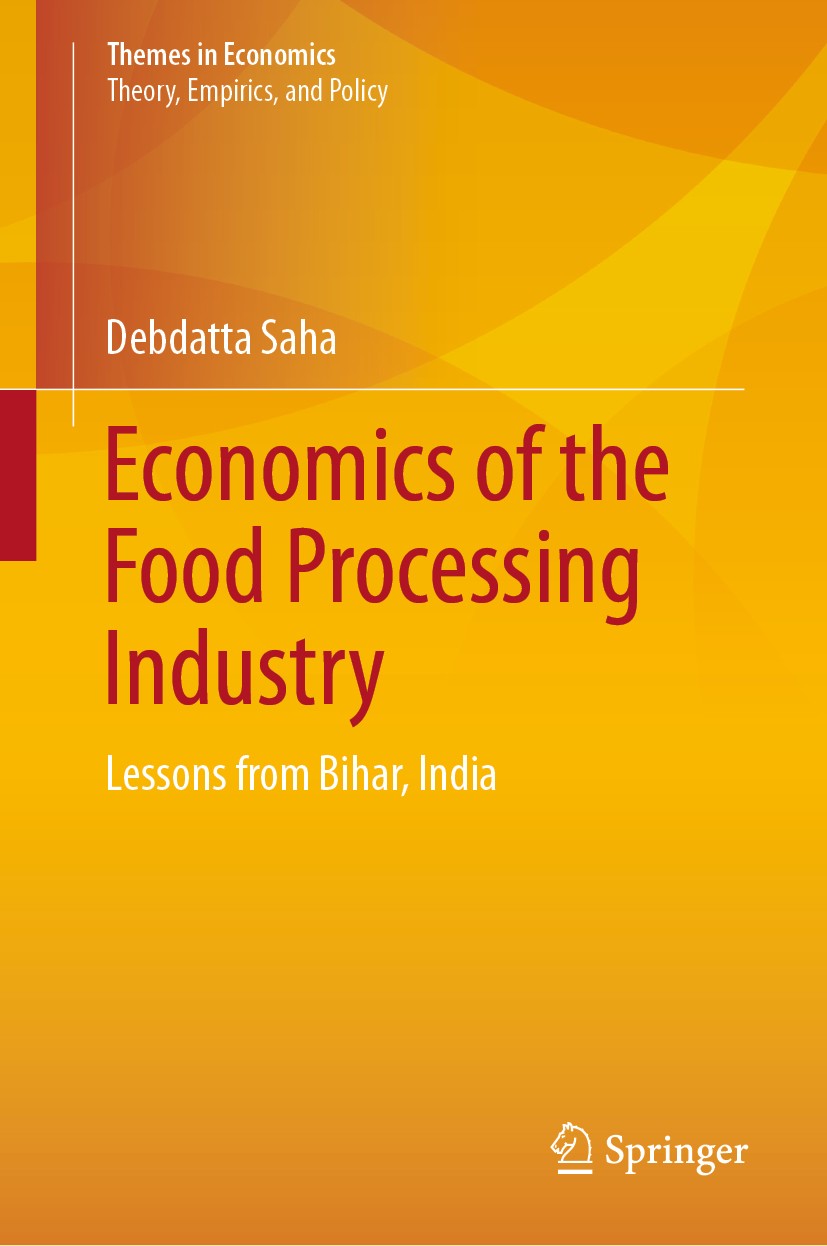| 书目名称 | Economics of the Food Processing Industry | | 副标题 | Lessons from Bihar, | | 编辑 | Debdatta Saha | | 视频video | http://file.papertrans.cn/303/302047/302047.mp4 | | 概述 | Uses a two-stage data envelopment analysis to explore the drivers of efficiency and isolate marketing risks (with externalities from government actions) from technical efficiency (purely attributable | | 丛书名称 | Themes in Economics | | 图书封面 |  | | 描述 | .This book presents a wealth of perspectives on studying the manufacturing end of food processing industries, with a special focus on regions with a low industrial base and multiple missing markets, institutional finance being the most prominent example. Positioning food processing within the industrial ecosystem, which includes entrepreneurs, policymakers, business consultants and associations, the study first considers three different trajectories: for developed economies, for national territories like India, and for sub-national regions like Bihar. In turn, it shows how these trajectories intertwine in two dimensions: the region and the sub-sector. Successfully completing food-processing projects in any of these trajectories requires the identification and development of appropriate product networks that link basic processed items with advanced ones through a chain of value addition. .Moreover, the supply-side narrative presented here identifies two types of costs: physical and non-physical costs of operation. For trajectories with skewed firm sizes (“missing middle”) and missing markets, which can be found in Bihar, the latter costs matter just as much as the former in terms of | | 出版日期 | Book 2020 | | 关键词 | Food Processing; COMFED; Food Park; Applied Industrial Organization; Agri-resources; Bihar Food Processin | | 版次 | 1 | | doi | https://doi.org/10.1007/978-981-13-8554-4 | | isbn_softcover | 978-981-13-8556-8 | | isbn_ebook | 978-981-13-8554-4Series ISSN 2730-5597 Series E-ISSN 2730-5600 | | issn_series | 2730-5597 | | copyright | Springer Nature Singapore Pte Ltd. 2020 |
The information of publication is updating

|
|
 |Archiver|手机版|小黑屋|
派博传思国际
( 京公网安备110108008328)
GMT+8, 2026-1-1 20:49
|Archiver|手机版|小黑屋|
派博传思国际
( 京公网安备110108008328)
GMT+8, 2026-1-1 20:49


